
4 Tips to Maximize RV Power & LP Capacity
4 Tips to Maximize RV Power & LP Capacity
From mindful travel choices to taking advantage of your RV’s systems.
By: GoLife Staff
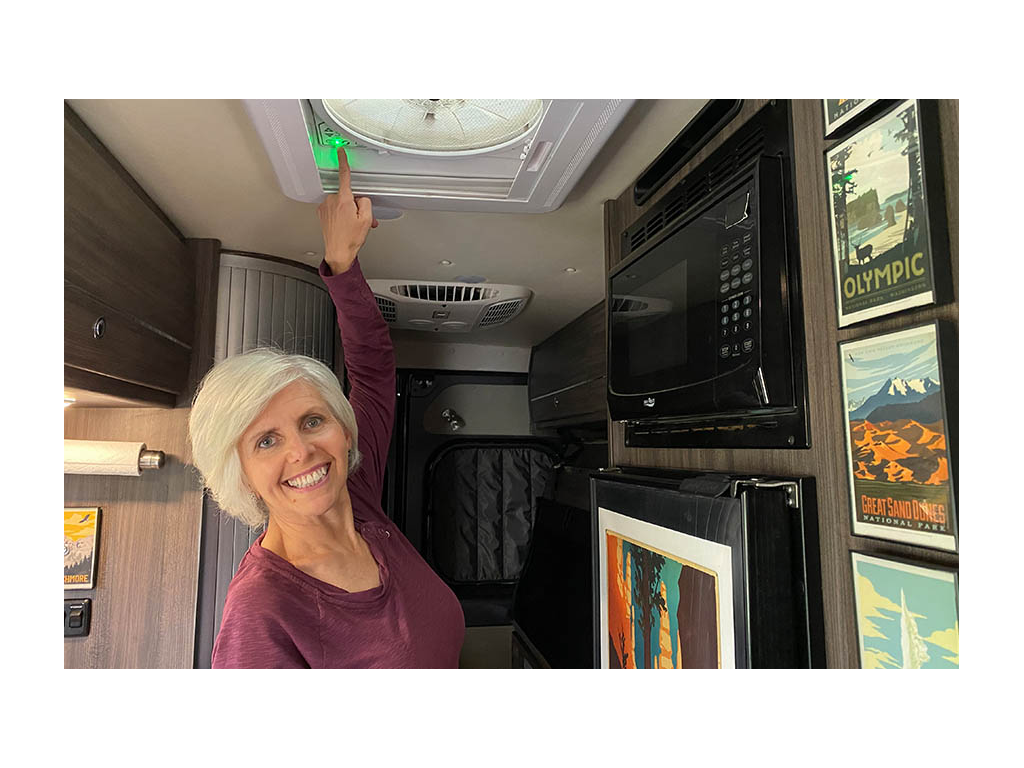
Whether you want to extend your boondocking capabilities, lower electricity costs when camping long-term, or save energy for more eco-friendly RVing, knowing how to maximize your RV power and LP (liquid propane) capacity is a helpful skill set to learn.
In this article, we’re sharing useful tips to keep you powered up longer, including some insights from our on-the-road GoLife writers.
1. Know What Needs Power in Your RV
First things first, you are going to need to read your manual (or ask your dealer) to find out what systems in your RV run off electricity, LP, etc. This is the first step in working toward limiting your usage and making the most of the power available to you.
RVs differ greatly in their sources of power and capacity. An RV can usually pull power from the campground ‘shore’ electricity, solar power, a generator (often run by fuel), and/or batteries. Some models may have more solar panels than others or batteries with a higher capacity (such as the Pure3 lithium system in the newer Travatos).
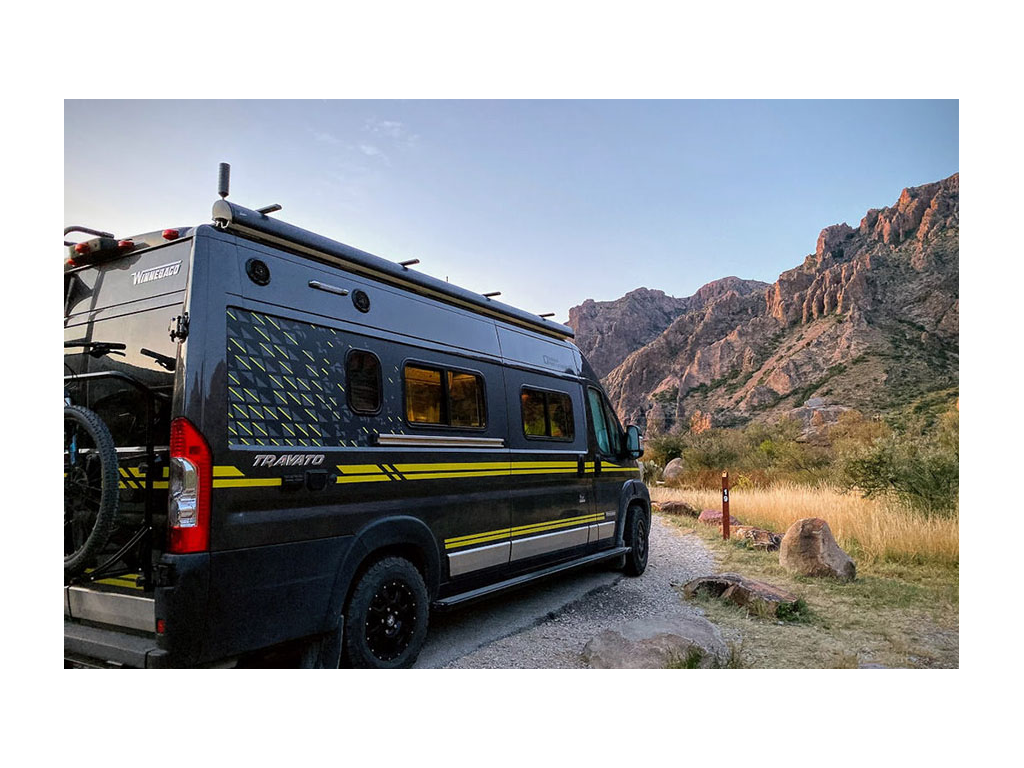
Photo Credit: James & Stef Adinaro.
Most often, RVs will need to be plugged into the electrical grid (shore power) to charge batteries and use major appliances, like the microwave or air conditioning. Once your batteries are charged, you can use them to power the lights and use lower-energy appliances when not plugged in, but it is important to monitor how much power is left and not overdo it. (Note: most batteries cannot handle higher-energy appliances, like air conditioning).
Don’t forget that things like the water pump and the blower fan for the furnace also use electricity. If your RV has an inverter, that also draws a small amount of energy, so it is smart to switch it off when not using it.
When not plugged in, a generator or solar power can be used to power your RV; however, what each has the capacity to power differs. For example, a generator should be able to power your air conditioning, but many solar setups could not.
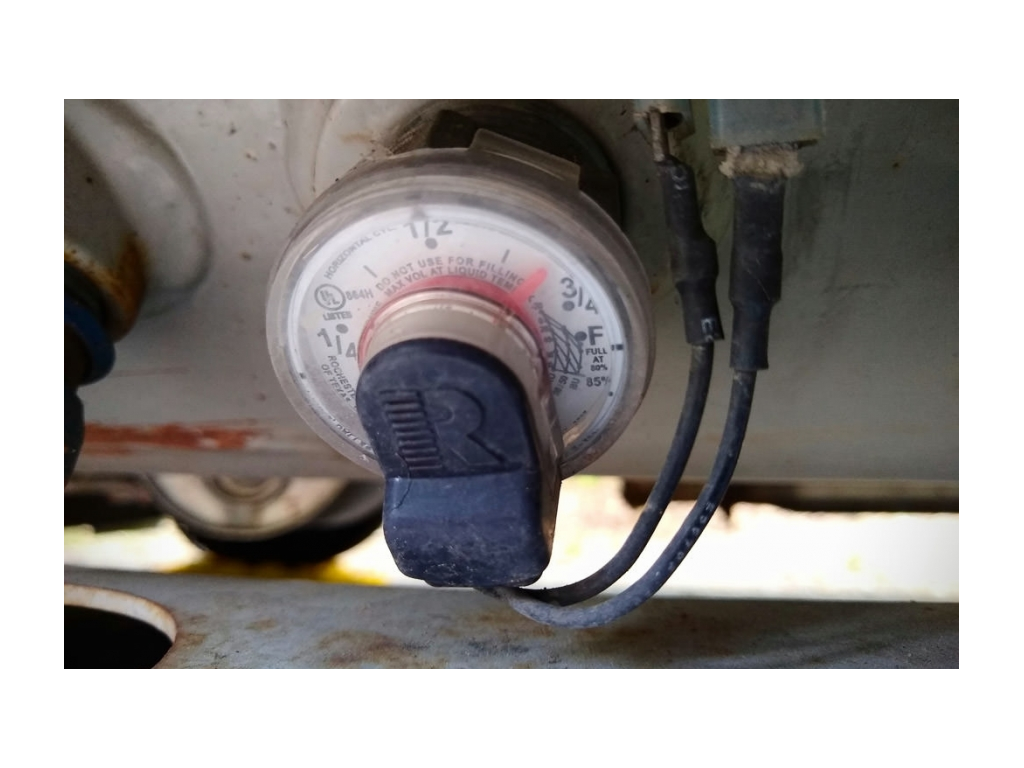
When it comes to propane, you’ll likely need it for running a variety of systems; these could include your gas stove, furnace, generator, water heater, and/or refrigerator. Limiting your propane use will help you save money and avoid having to stop as often to get your propane tank filled. Of course, there are also propane-free RVs, like the Revel!
2. Focus on Energy-Efficient Cooking
One of the great things about RVing is bringing along anything you may want for meals while camping and traveling. Although plenty of meals can be made without the need for heat or electricity, many favorite go-to recipes do involve using appliances that need power or LP.
Kelly Laustsen and David Somach are pros at cooking in their Revel van, so we asked them to share some tips. Here are their cooking insights:
Our primary mode of cooking is our induction stove, so we try to cook in ways that conserve the electricity stored in our batteries. When we're on the move, our alternator keeps the batteries topped off, but conserving electricity is especially important when we're boondocking somewhere for a few days.
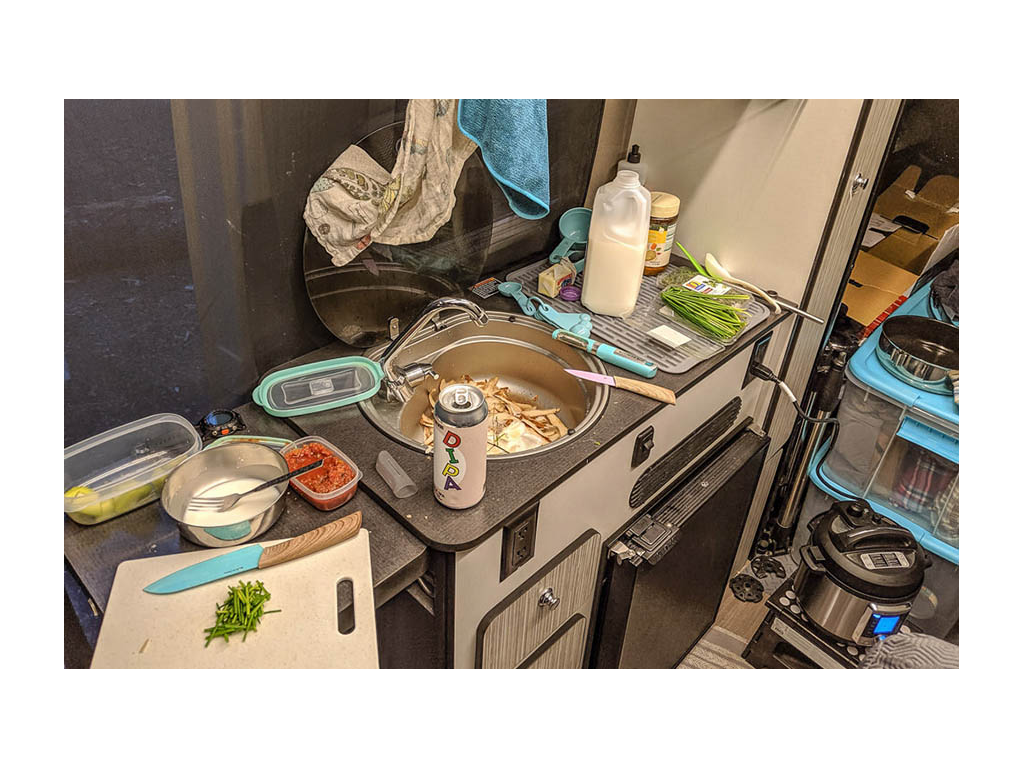
We cook dinner before it gets dark out to take advantage of power produced from the solar panels. We especially love our Instant Pot for sunny days as it keeps food warm for a while after it is done cooking. This also allows time for our batteries to recharge while the sun is still up.
When we cook, we make large portions so that we don't need to prepare a meal from scratch every day, since reheating leftovers uses far less power. Lastly, we keep our meals simple, opting for fewer ingredients and recipes with short cooking times.
In addition to Kelly and David’s tips above, you can also consider trying some campfire recipes (when feasible) or investing in cooking appliances that use less propane or electricity.
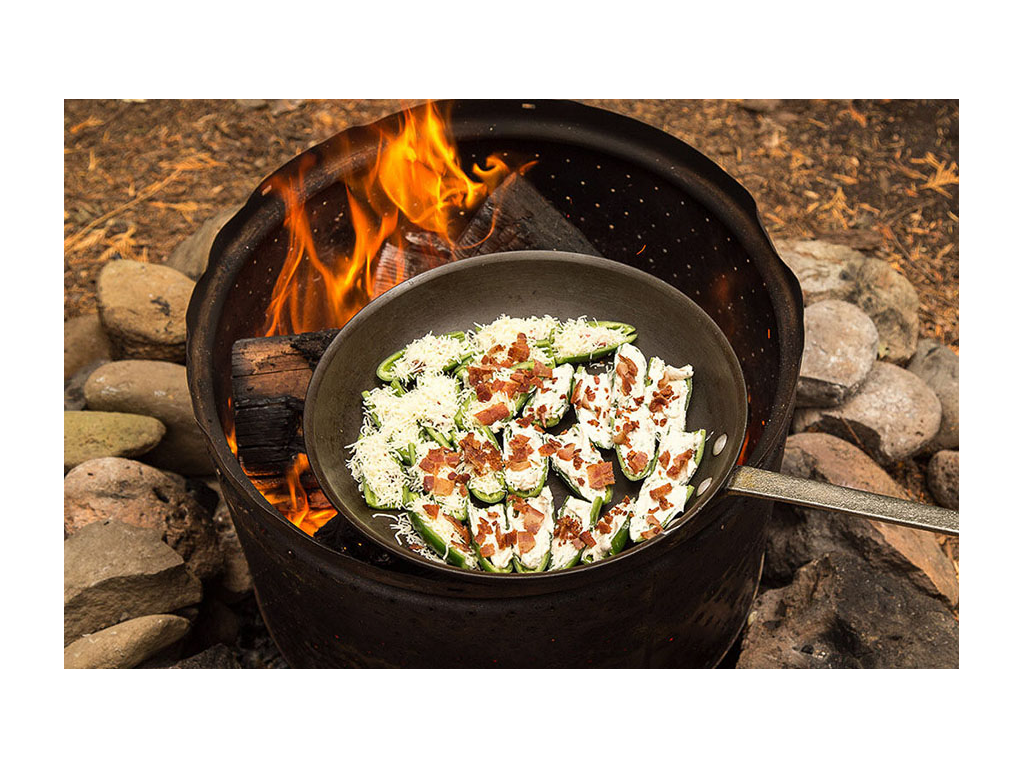
Being prepared to cook will help to limit your fuel use as not to waste any time. Your cooking methods can also make a difference: don’t use a pan larger than needed or more water than necessary since that will take more LP or power to heat up. A tight-fitting lid will also help food cook faster, and decreasing the flame as soon as possible will save on LP. When using your oven, make sure you don’t let it pre-heat longer than necessary.
3. Get Extra Power from the Sun
Using solar panels is a popular, effective way to minimize your environmental impact by limiting your need to be plugged in. This is also a great way to extend your time off-grid (a common wish for many RVers in love with boondocking).
These days, many new RVs come with solar panels already installed; however, if you find yourself needing more power, you can take advantage of portable solar panels or upgrade your current system with more roof panels or higher battery capacity.
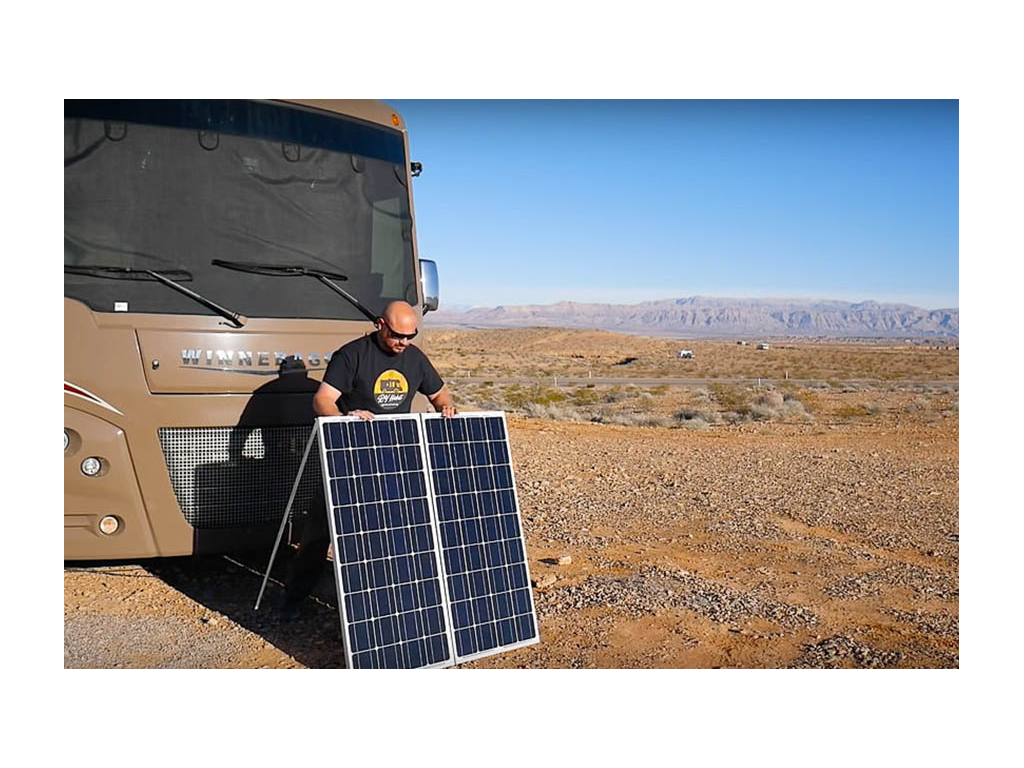
Photo Credit: Kenny Phillips.
If you aren’t ready for solar panels yet, you can still use the sun to help you conserve energy! Parking with the sun in mind when plugged in can help you to limit your need for A/C or heat. Avoid parking in direct sunlight during summer and use the sun’s heat to help warm your RV during winter. Of course, if you are using solar panels, you will want to make sure they are always getting sunlight – that’s where portable ones can be helpful!
4. Take Advantage of Your RV's Systems
As we’ve noted, RVs vary greatly in their systems and features. The best way you can maximize power and LP capacity while traveling is to know how to best use those systems to your benefit.
We asked GoLife contributors Noel Fleming and Chris Miller to share some examples of how they have adapted to using the systems in their van – including the Volta Power System.
Here are their top insights on RV systems:
As Travato owners, we have accepted the challenge to become systems managers, and we like challenges! Understanding the systems in our van has improved our decision-making regarding energy consumption.
Did you know that parasitic draw exists in your RV? Minimizing this draw can significantly conserve power. The inverter draws power whenever it is on, so we use a 110v nightlight as a visible reminder to turn off the inverter when not in use.
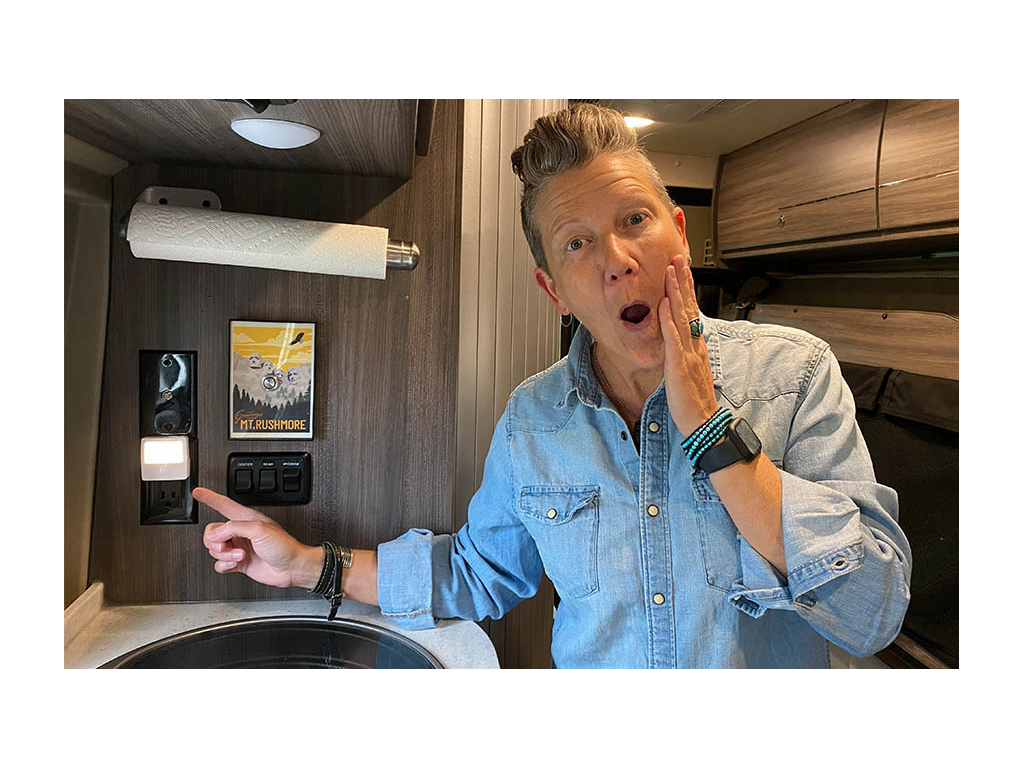
Since USB or 12v power options do not require use of the inverter, we use USB fans and switched our cell booster from a 110v to a 12v power supply. Also, before making any vanlife appliance purchase, we consider how much energy it consumes. Even a small hairdryer can be a power hog.
A Bluetooth kit and accompanying app allows us to monitor our Volta Power System energy usage in real time. The data shows both negative and positive power flow. This feature refines how and when we charge devices or which 110v appliances we use simultaneously.
The Truma Combi Eco Plus Heating System in our van offers a choice of energy sources when heating water or air. Since our system runs on electric, LP (liquid propane), or a combination of both, we have schooled ourselves in understanding the criteria and efficiency of all three options. Hint: LP usually wins! And we love the Truma timer function in that we can set the thermostat low at night and wake to a warm van in the morning!
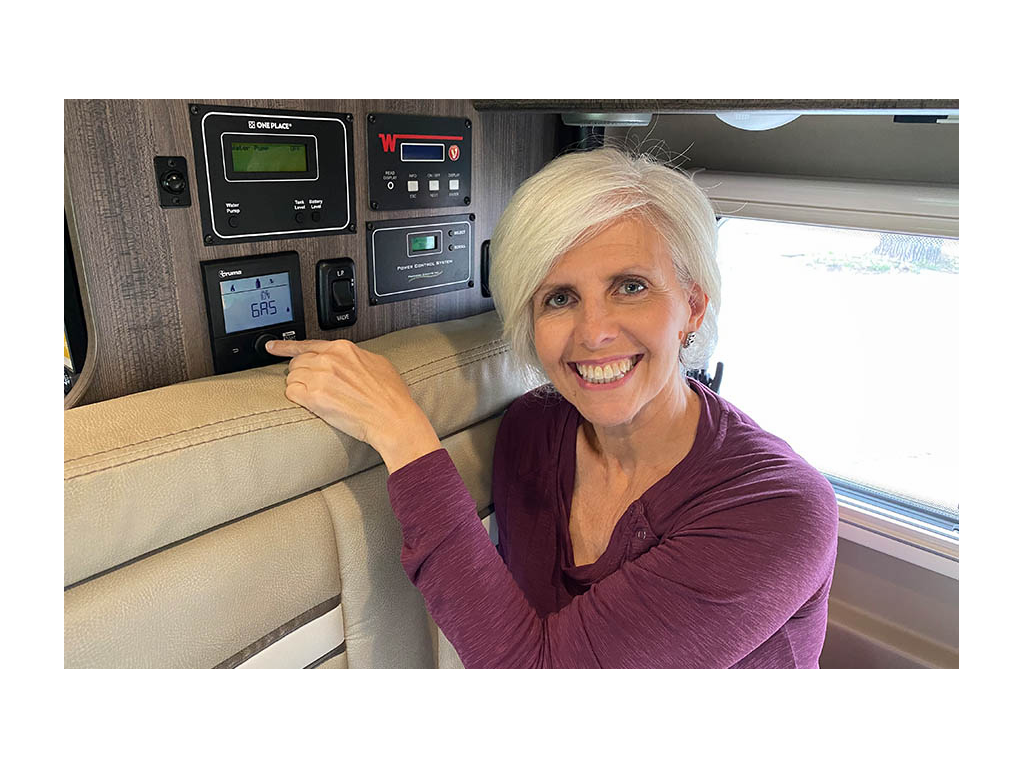
Proactive climate control also plays a significant role in our energy conservation. At times, utilizing window coverings and curtains or parking in the shade keeps our van cooler. Conversely, at other times, we park in direct sunlight to warm the van and maximize solar input. The A/C and the Maxxair fan thermostatic control functions also reduce energy consumption. Often coupling window ventilation with the Maxxair fan creates amazingly comfortable conditions eliminating the need for the A/C. Huge power saver AND fresh air!
Whatever RV you are rolling in, become a master at systems management and it will enhance your adventure immeasurably!
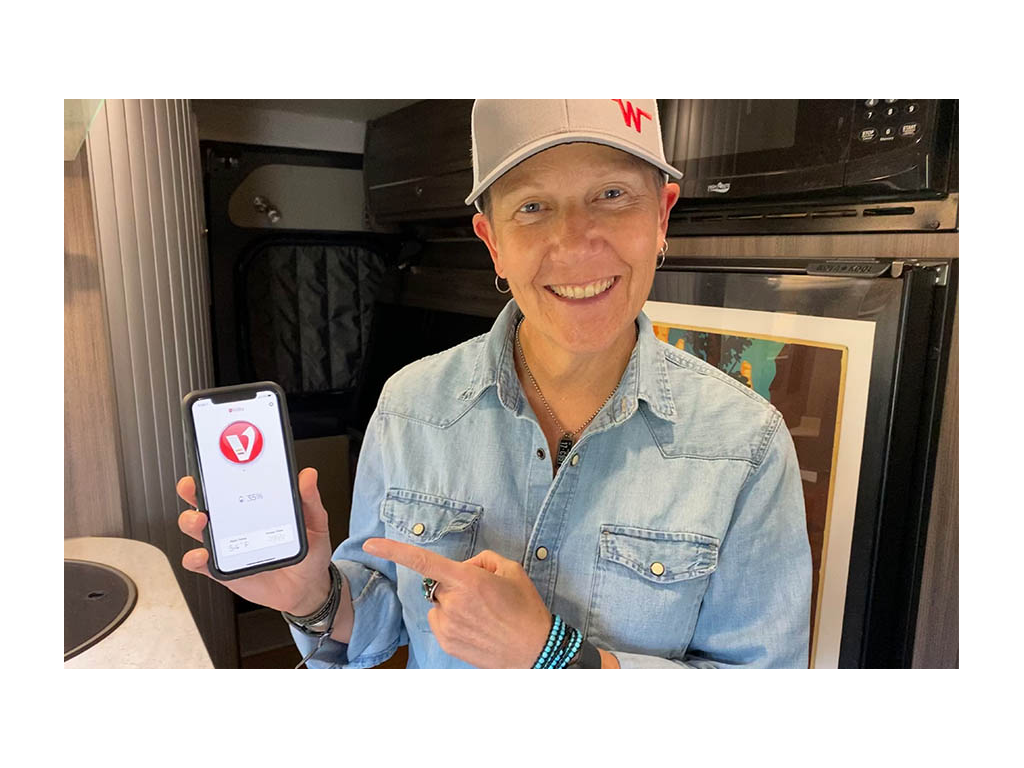
Final Thoughts on Maximizing RV Power & LP Capacity
Making the most of your RV’s power and LP capacity starts with a clear understanding of what systems they are needed for. However, continuing to be mindful as you travel and make appliance purchases is the key to really keeping your energy consumption in check. Choose energy-efficient products, switch off lights whenever possible, and don’t forget to stay updated with your RV’s maintenance to keep systems working effectively.
We hope this article was helpful! For more tips, check out our other RV education articles.
Comments
Comments on this post are moderated, so they will not appear instantly. All relevant questions and helpful notes are welcome! If you have a service inquiry or question related to your RV, please reach out to the customer care team directly using the phone numbers or contact form on this page .